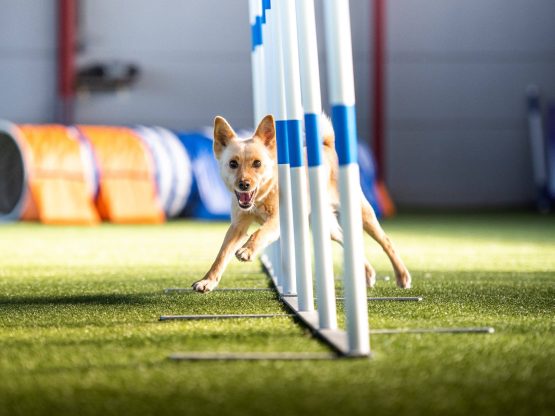Agility training is a popular sport that involves dogs navigating a series of obstacles while following commands from their handlers. While the physical benefits of agility training are well-documented, its impact on a dog's mental health and well-being is often overlooked.

First and foremost, agility training provides dogs with an opportunity to engage in physical activity and mental stimulation. As dogs navigate the course and follow commands, they are using their brains and their bodies in a way that can be incredibly rewarding. This can help to reduce stress and anxiety, and promote feelings of happiness and contentment.
In addition to the physical and mental benefits of agility training, it can also help to build a strong bond between dogs and their handlers. The trust and communication required to successfully navigate the course together can be a powerful bonding experience for both dog and handler.
Agility training can also help to build a dog's confidence and self-esteem. As dogs successfully navigate obstacles and complete courses, they gain a sense of accomplishment and pride that can carry over into other areas of their lives.
For dogs that may be struggling with behavioral issues such as anxiety or fear, agility training can be an effective tool for building trust and confidence. By providing a structured and controlled environment in which to learn and succeed, agility training can help dogs to overcome their fears and develop more positive behaviors.
Finally, participating in agility competitions can be a fun and rewarding experience for dogs and their handlers. The sense of community and camaraderie that comes with competing in events can be a positive social experience for both dog and handler.